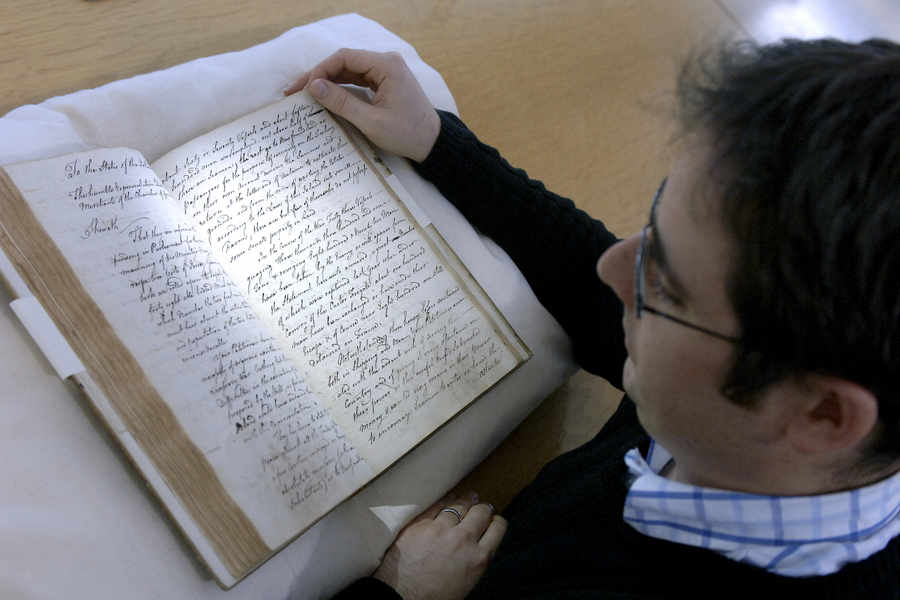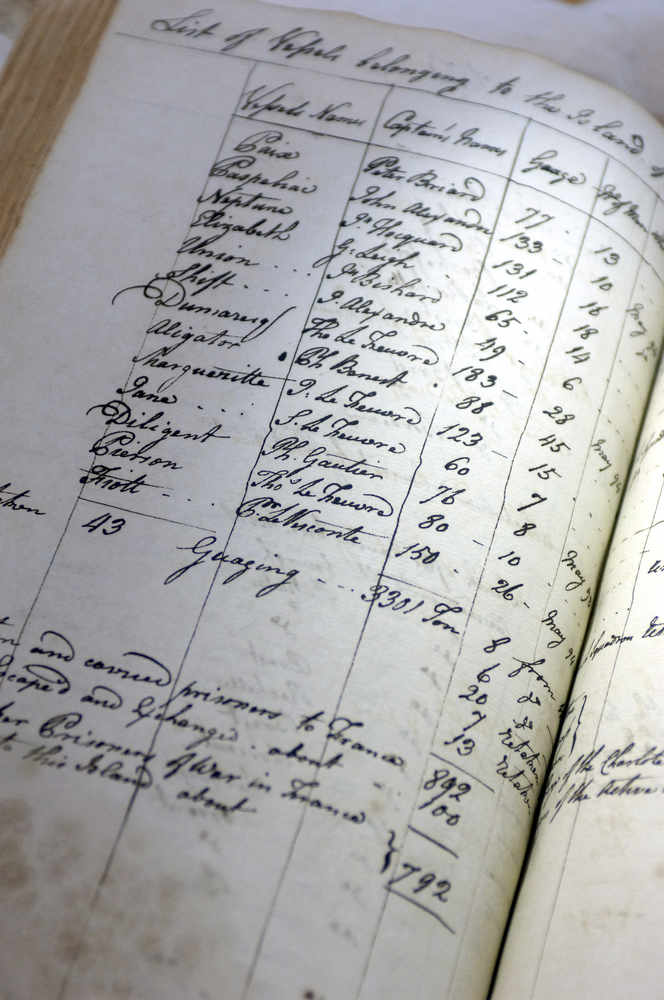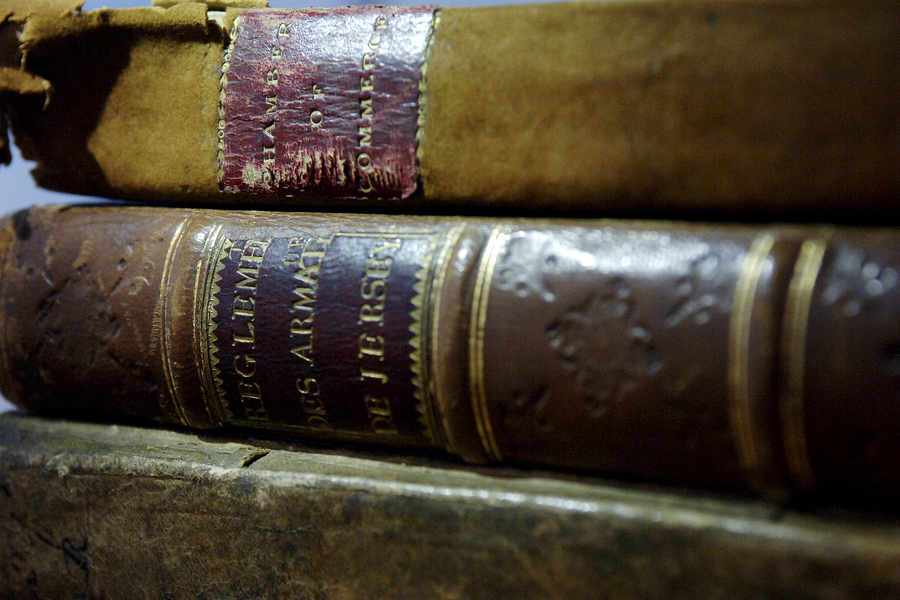Kristina Le Feuvre, who runs the aMaizin! Adventure Park in St Peter with her husband, Carlton, was voted in at the annual general meeting for the two-year term of office.
Taking the platform, she said that with ‘some difficult decisions’ to be faced over the next few years, the Chamber’s hundred or so committee members would need to work together.
‘Jersey is going through a difficult time and there are some difficult decisions to be reached,’ she said. ‘We need to ensure that the Chamber plays a vital role.’

She described herself as ‘perhaps not a typical president’. ‘I work in tourism; my business is not based in town; I’m female, and a small business owner. I have a passion for the Island, and its prosperity.’
Getting young people involved would be one of the key areas during her term of office, she said. ‘I would like to engage with younger members, perhaps going into the schools.
‘Businesses contribute to the wellbeing of the Island – and profit should not be a dirty word.’
Thanking the outgoing president, James Filleul, for being ‘a calm and steady pair of hands’, Mrs Le Feuvre said that the Chamber was not ‘a box-ticking organisation’ and needed to be at the heart of the business community.
‘We all have one common goal. Chamber needs to be a partner in offering solutions over the next two years,’ she said.
‘I passionately believe that Chamber can make a real difference,’ she added.
Prior to setting up the aMaizin! Adventure Park business in 2001, Mrs Le Feuvre, who was appointed on Thursday, worked in the financial services industry for ten years in senior management roles.
Professional memberships include the Small Business Forum, the Institute of Directors Industries Committee – of which she was chairman – and the Tourism Development Fund panel. She was awarded IoD Established Director of the Year in 2011 and with her husband was joint Entrepreneur of the Year in 2005.

THE Island’s Chamber of Commerce, the oldest in the English speaking world, deposited records that begin from their formation to the Jersey Archive in 2007.
It makes the 70 or so books that chart the history of the Chamber accessible to the public. Archivist Stuart Nicolle said that the deposit would be a ‘treasure trove of information’ for anyone who is interested in the Island’s maritime and economic history.
‘It’s fantastic for us because it opens up a lot of research on economic and maritime issues, which is something we’re really lacking at the moment,’ he said.
‘The Chamber of Commerce is independent from the States so it is great that they decided to deposit their documents with us.’ The first books were written in the 1760s. The minuted records date to the 1970s and cash books through to the 1980s.
Mr Nicolle said that so far he had only been through some of the earlier documents, but he had already found a wealth of valuable information.
He added that, perhaps surprisingly, the majority of documents are written in English with only a few letters penned in French. ‘It’s a great record and will take quite a long time to go through but it’s going to be fantastic for people studying maritime and economic history,’ said Mr Nicolle.
‘But with so many records it will be down to the researchers themselves to dig out the information.
‘The ones I’ve really concentrated on so far cover the Napoleonic era but it is also interesting reading about the trade with Newfoundland.’

Formation of the Jersey Chamber
The Jersey Chamber of Commerce was established in 1768, principally by ship owners.
In the mid-18th century maritime trade was growing rapidly and the merchants, ship owners and traders felt that the States was run by an upper class who were not working for their interests.
The earliest minutes book of the collection details the Chamber’s first meeting on 24 February 1768, where James Hemery was appointed secretary.
Three days later a general meeting attended by a large number of prominent merchants saw the formation of the committee and the appointment of the first president, George Rowcliffe.
These early records illustrate the marinebent of the Chamber at its formation, with the ships owned by members listed in the front.
Subscription fess were also determined by the tonnage of their ships. It began with three pence per ton per annum.
Privateering – legal piracy
In the early days of the Chamber privateering was common in Jersey.
Privateers were legal pirates who had a letter of mark from the government allowing them to attack enemy ships.
These privateers did not come under the Royal Navy but were simply allowed to attack enemy ships for their own profit.
Many privateers were members of the Chamber of Commerce and much of their booty feature in the accounts.
It was evidently a lucrative venture and one batch of ‘prizes’ in 1780 is recorded as being worth £231,870, of which £1,159 was given to the Chamber.
However, not everyone was happy with the questionable work of the privateers. On 22 September 1800, Philip Janvrin, the president of the Chamber at that time, received a letter from the Prince of Bouillon, Philip d’Auvergne, who was the governor of the Island, warning them about the privateers’ raids.
‘In these acts of illiberal mischief they presume to pass themselves as tenders of the fleet under his lordship’s command.’
A rocky relationship with the States
A tension evident from the early records, which arguably exists to this day, was between the States and the Chamber.
At a meeting on 17 November 1786, the Chamber was informed of the previous day’s States’ sitting, where a petition from the merchants to the States about the Island’s harbours was due to be discussed. While it is not clear what the outcome of the debate was, something in the Assembly clearly infuriated the Chamber.
‘The Chamber find that by this extraordinary proceeding they are debarred from obtaining the sense of the States of the Island on this important and urgent business and sensible of the prejudice which the trade suffers more and more by the repeated differences, obstructions and affected delays which are opposed to the final determination of a matter so essential to the welfare and support of the navigation and commerce of this Island,’ they said.
However, they do say that ‘the thanks of the Chamber go to the Dean and the clergy on the Island for their support on this issue about the harbours’.

Chamber discipline
The records include details of the private accounts of Chamber members. The Chamber would fine their members for a number of reasons, including non attendance of meetings.
The records show that the Chamber seemed to get particularly strict between 1782 and 1783, during which time fines are logged on a regular basis.
One case in the minute books during this period reveals that carpenters on ships demanded higher wages.
However, the Chamber rejected their claim and decided that any members who paid their carpenters over the decreed maximum wage would be fined.
One book also lists vessels belonging to Jersey which were seized by France in the Napoleonic war. Compiled in 1795, the list shows those vessels taken since 1 February 1793.






